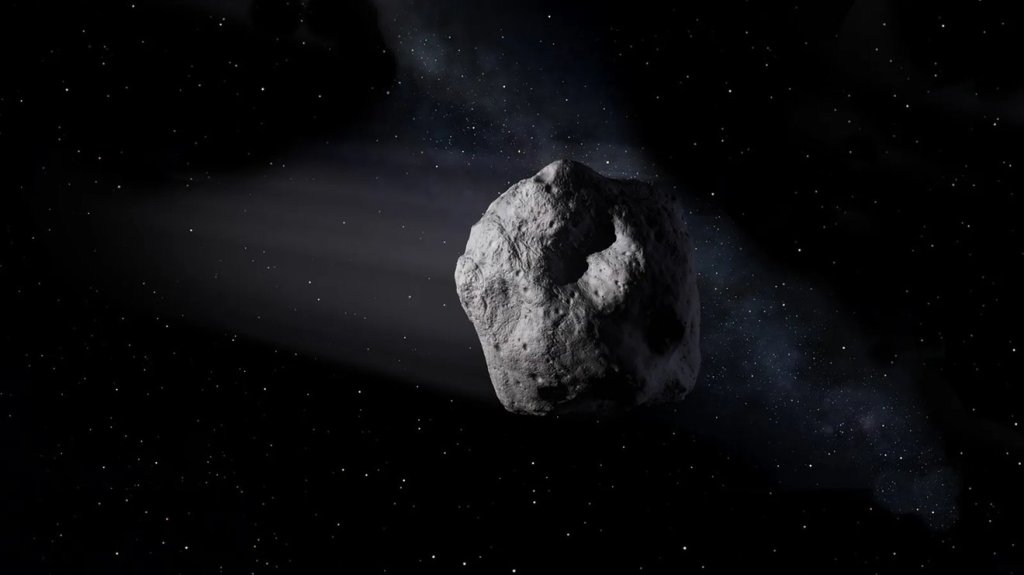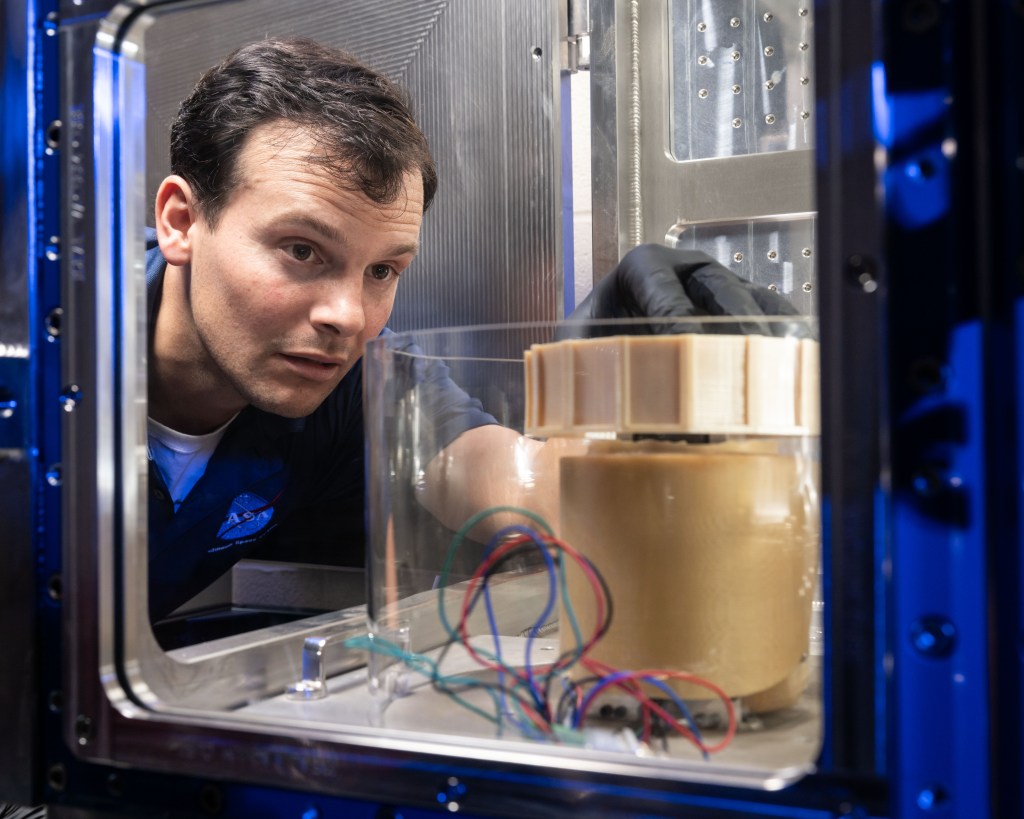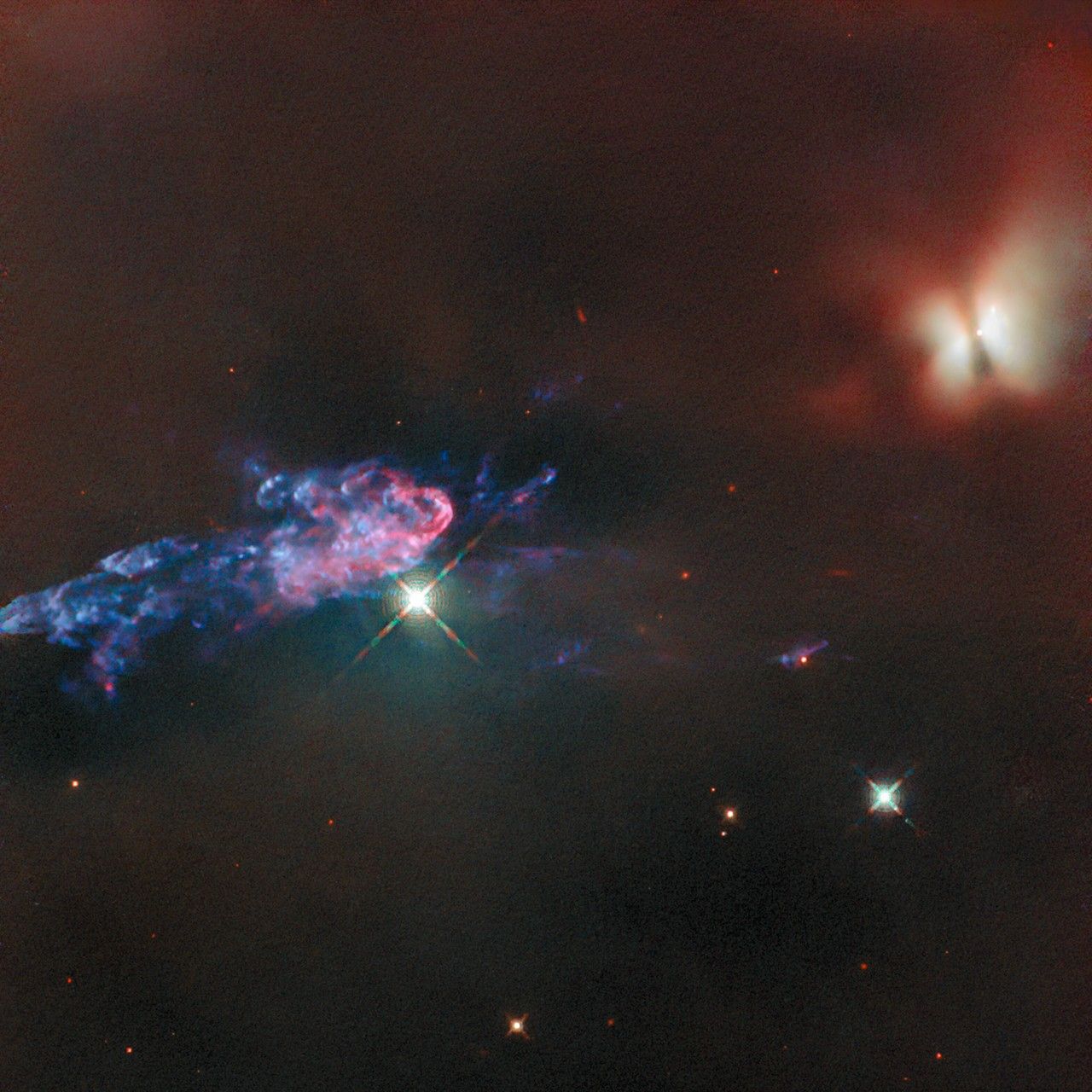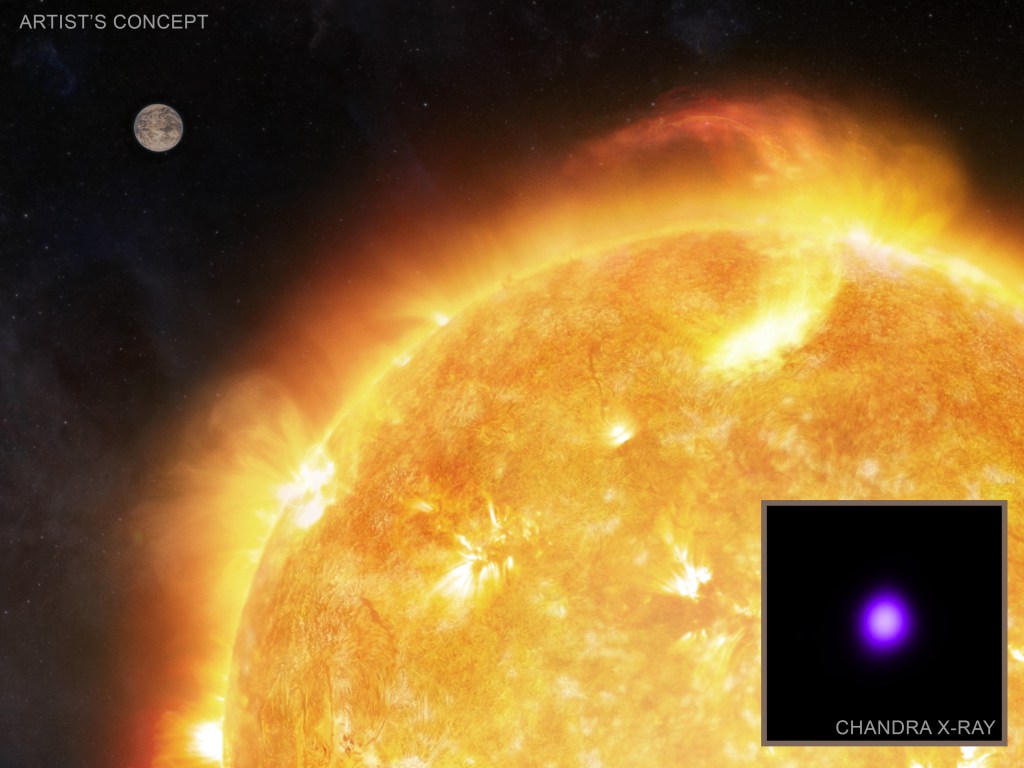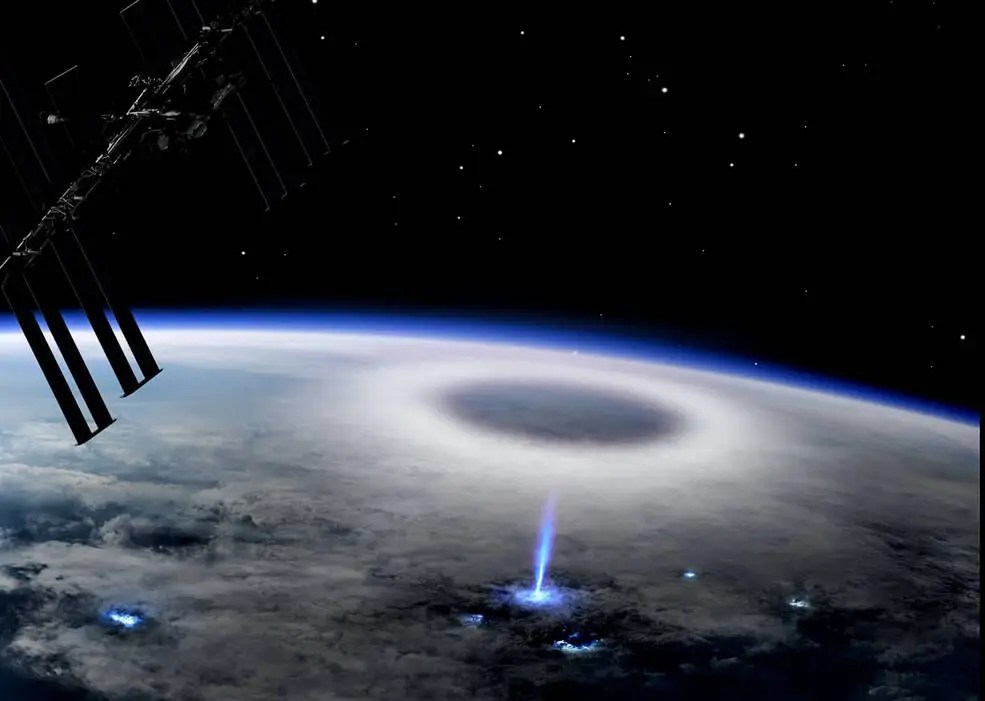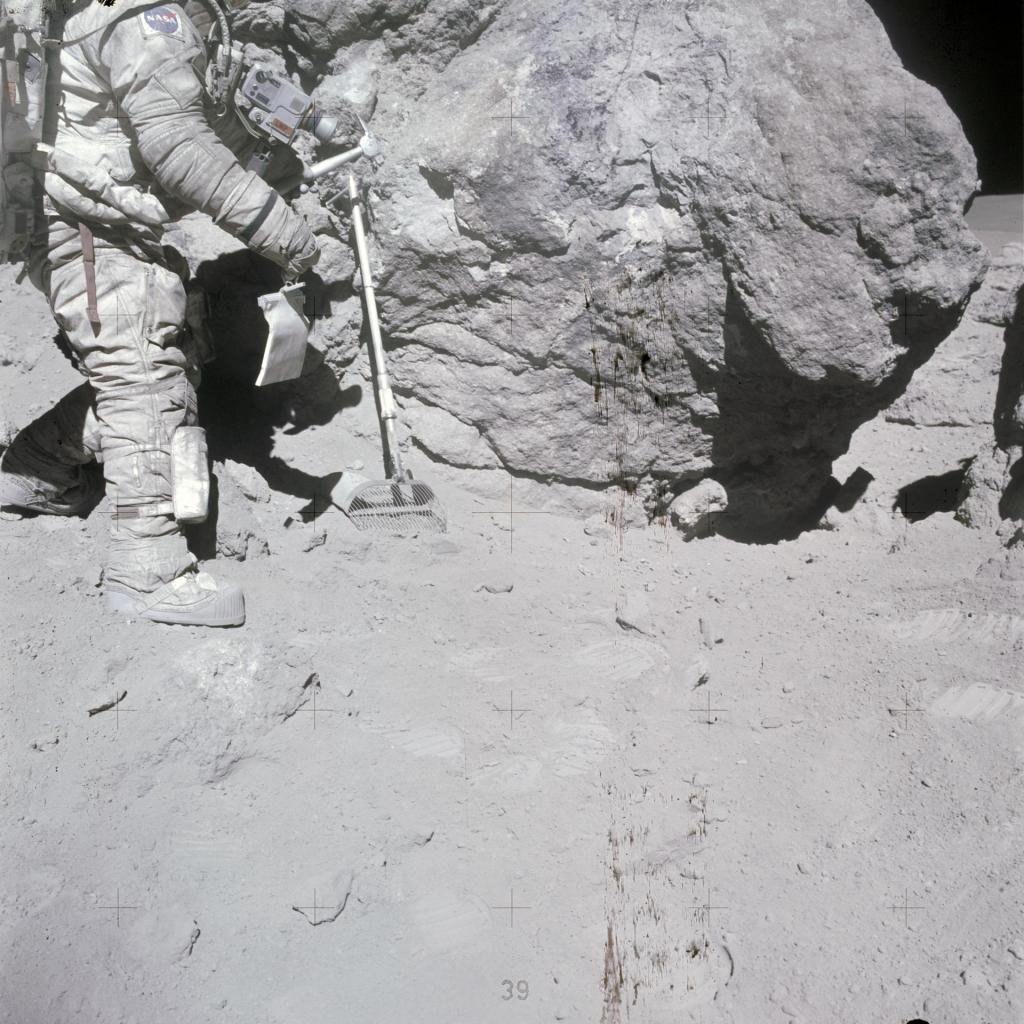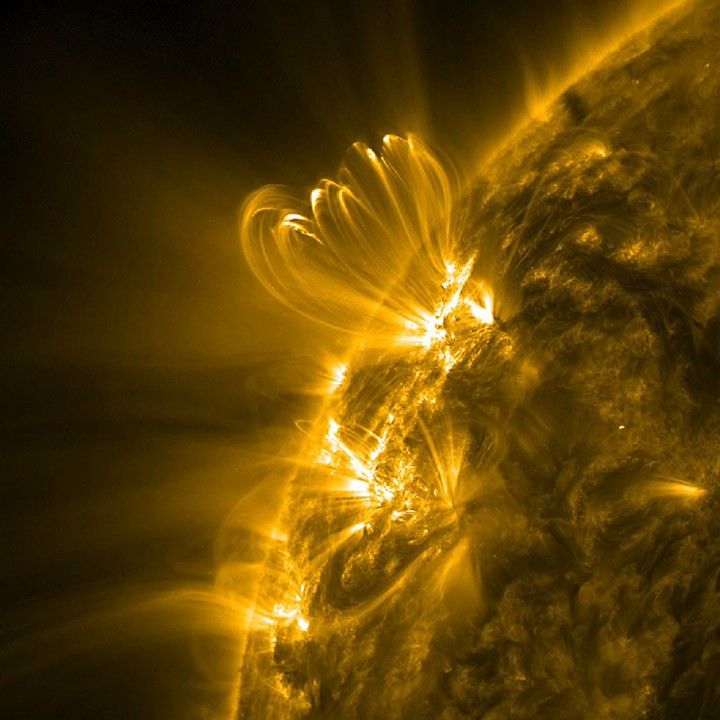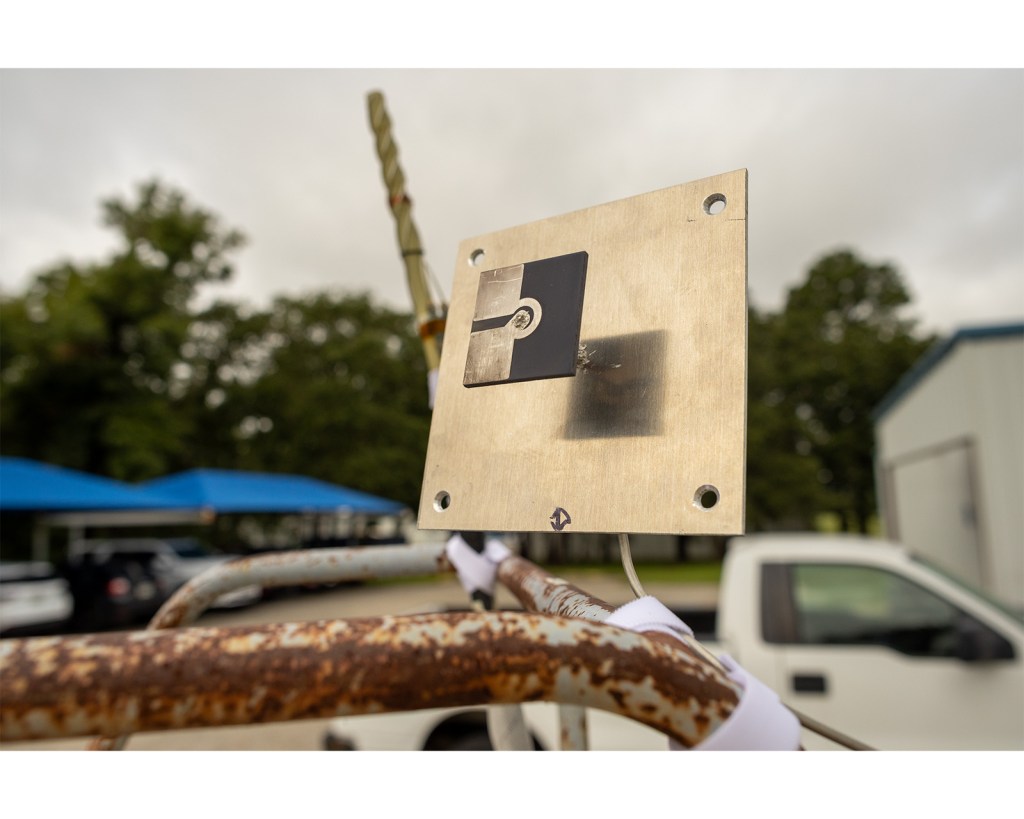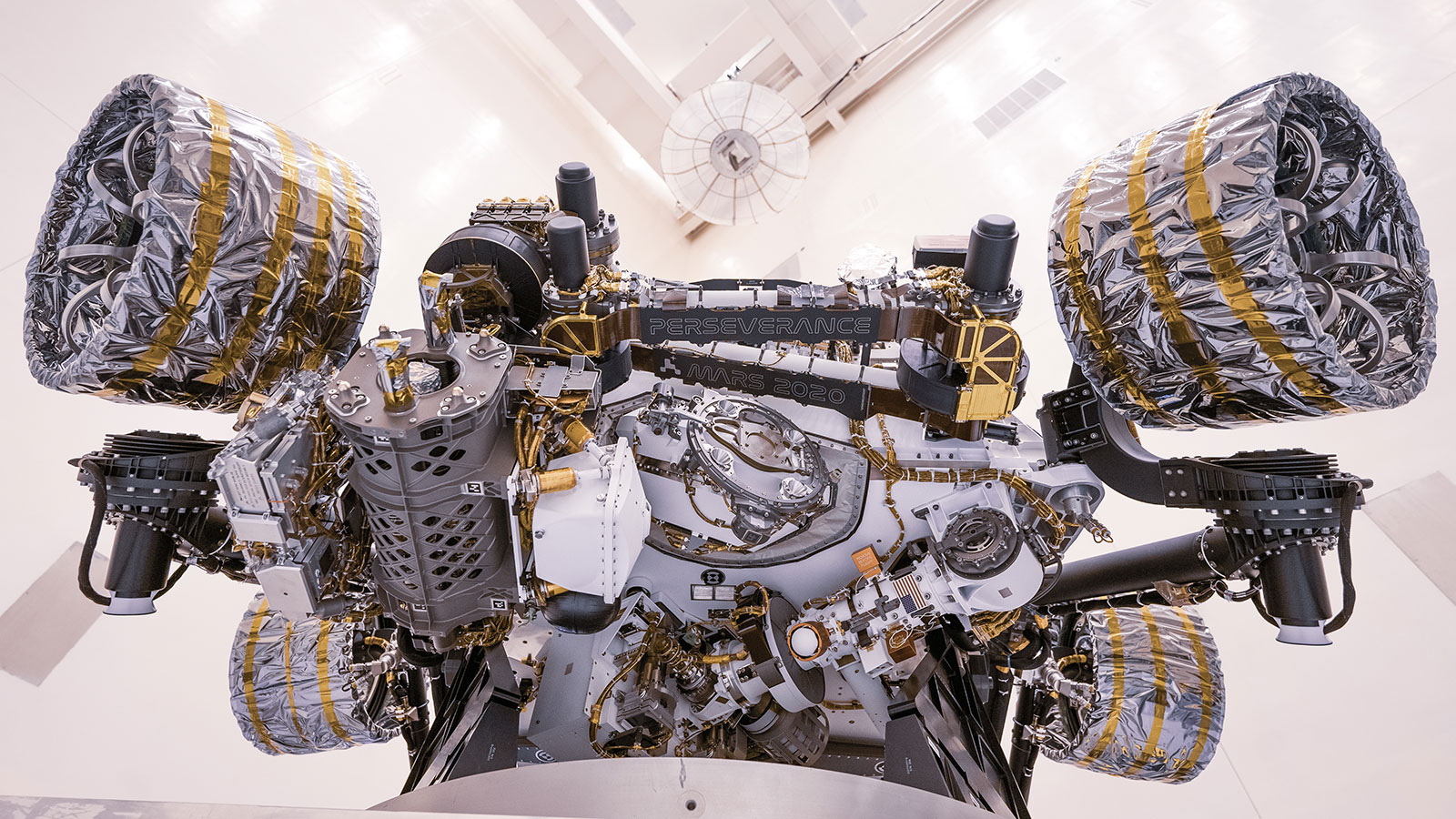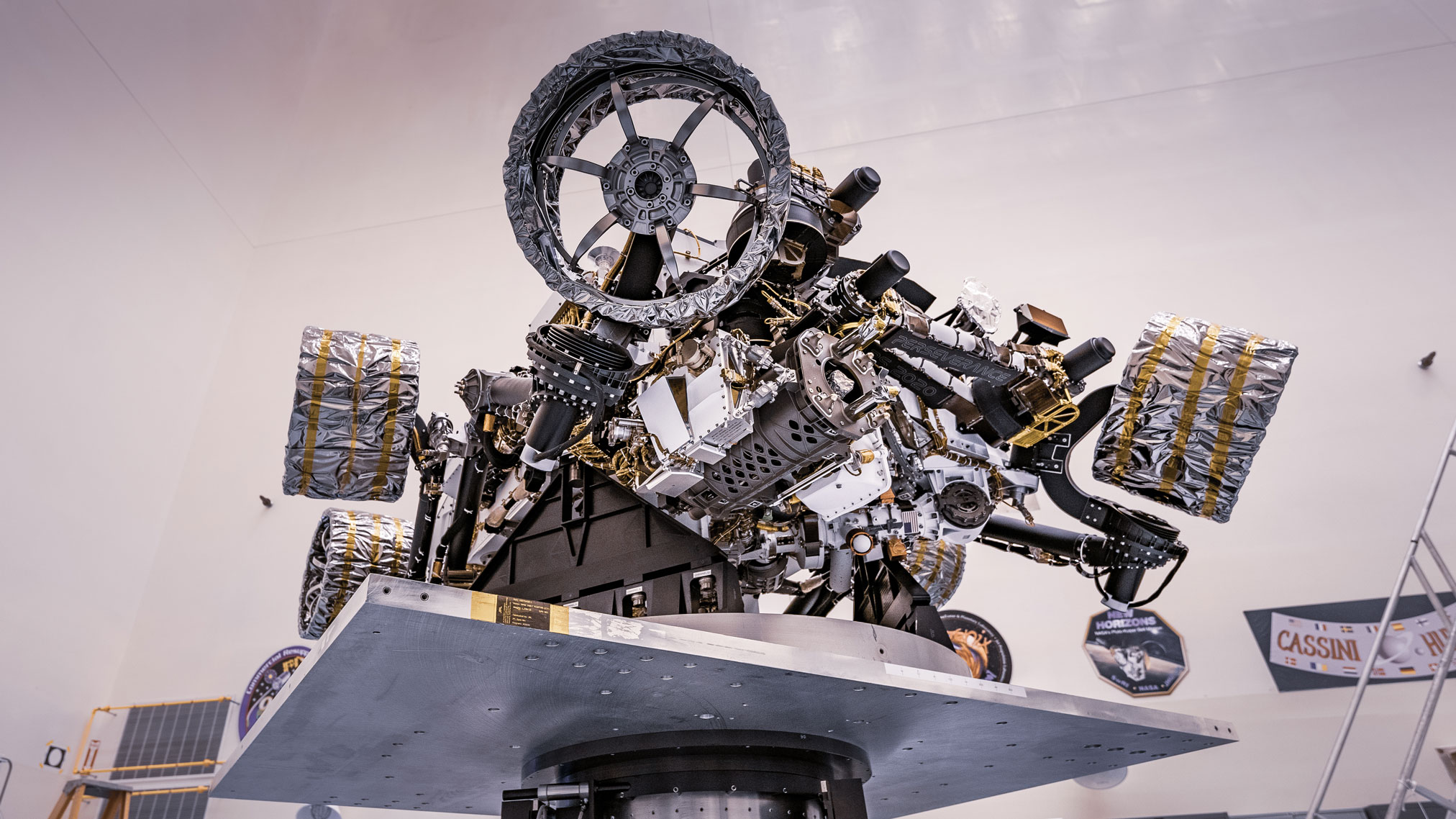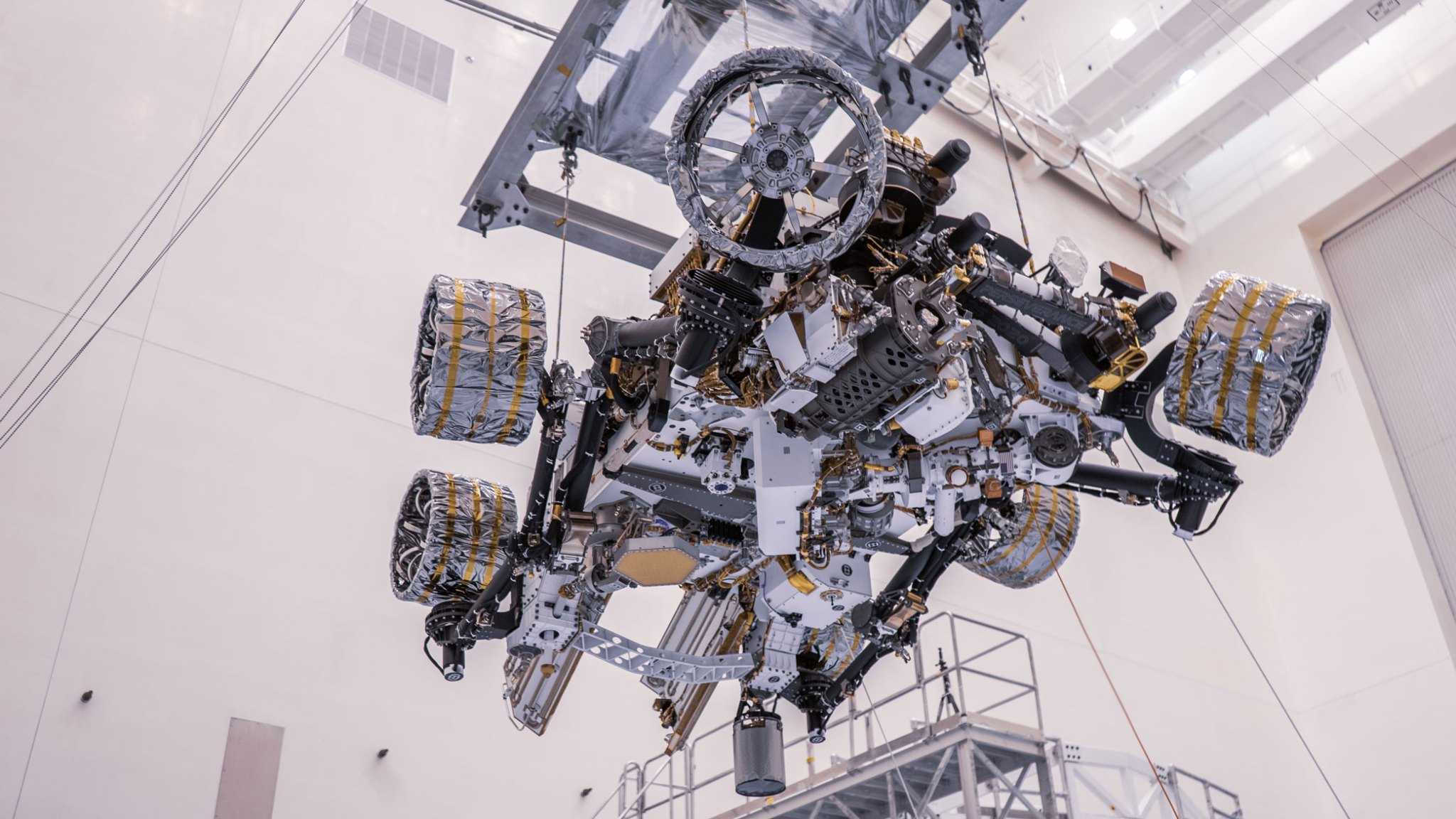With 13 weeks to go before the launch period of NASA’s Mars 2020 Perseverance rover opens, final preparations of the spacecraft continue at the Kennedy Space Center in Florida. On April 8, the assembly, test and launch operations team completed a crucial mass properties test of the rover.
Precision mass properties measurements are essential to a safe landing on Mars because they help ensure that the spacecraft travels accurately throughout its trip to the Red Planet — from launch through its entry, descent and landing.
On April 6, the meticulous three-day process began with Perseverance being lifted onto the rover turnover fixture. The team then slowly rotated the rover around its x-axis — an imaginary line that extends through the rover from its tail to its front — to determine its center of gravity (the point at which weight is evenly dispersed on all sides) relative to that axis.
The team then moved the rover to a spin table. To minimize friction that could affect the accuracy of the results, the table’s surface sits on a spherical air bearing that essentially levitates on a thin layer of nitrogen gas. To determine center of gravity relative to the rover’s z-axis (which extends from the bottom of the rover through the top) and y-axis (from the rover’s left to right side), the team slowly rotated the vehicle back and forth, calculating the imbalance in its mass distribution.
Just as an auto mechanic places small weights on a car tire’s rim to bring it into balance, the Perseverance team analyzed the data and then added 13.8 pounds (6.27 kilograms) to the rover’s chassis. Now the rover’s center of gravity is within 0.001 inch (0.025 millimeters) of the exact spot mission designers intended.
The Perseverance rover is a robotic scientist weighing about 2,260 pounds (1,025 kilograms). It will search for signs of past microbial life, characterize the planet’s climate and geology, collect samples for future return to Earth, and pave the way for human exploration of the Red Planet. No matter what day Perseverance launches during its July 17-Aug. 5 launch period, it will land on Mars’ Jezero Crater on Feb. 18, 2021.
The Mars 2020 Perseverance rover mission is part of a larger program that includes missions to the Moon as a way to prepare for human exploration of the Red Planet. Charged with returning astronauts to the Moon by 2024, NASA will establish a sustained human presence on and around the Moon by 2028 through NASA’s Artemis lunar exploration plans.
For more information about the mission, go to:
https://mars.nasa.gov/mars2020/
For more about NASA’s Moon to Mars plans, visit:
https://www.nasa.gov/topics/moon-to-mars
DC Agle
Jet Propulsion Laboratory, Pasadena, California
818-393-9011
david.c.agle@jpl.nasa.gov
Grey Hautaluoma / Alana Johnson
NASA Headquarters, Washington
202-358-0668 / 202-358-1501
grey.hautaluoma-1@nasa.gov / alana.r.johnson@nasa.gov
2020-075

